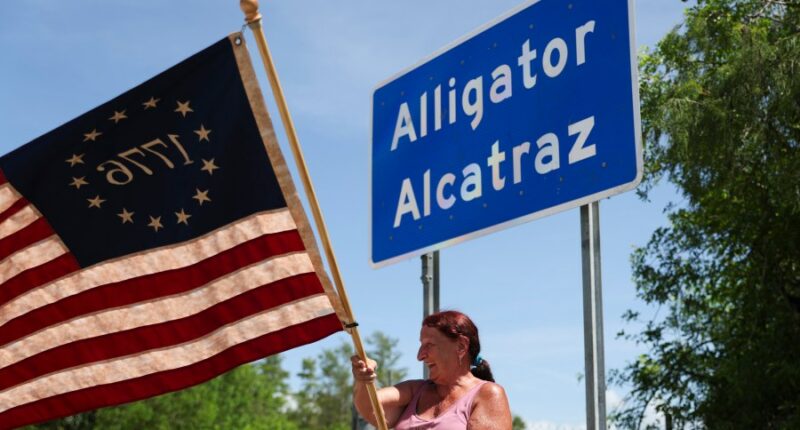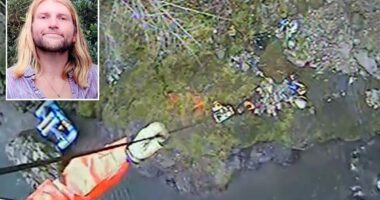Share this @internewscast.com

ORLANDO, Fla. (AP) — More than a month following the establishment of “Alligator Alcatraz” in Florida’s Everglades, the state and ICE have agreed on a revised document detailing the protocols for managing federal immigration detainees at non-traditional correctional sites.
This week’s addendum updated a 2020 pact between Florida’s Department of Corrections and U.S. Immigration and Customs Enforcement, originally outlining handling procedures for federal immigration detainees at correctional locations, not at facilities like the newly established one. This revision was disclosed in court documents Thursday, concerning a civil rights lawsuit asserting the inability of “Alligator Alcatraz” detainees to access attorneys or immigration courts.
Nick Meros, representing Florida, redirected queries about the addendum’s delayed release to state officials. A Florida Department of Corrections spokesperson did not answer an email inquiry.
U.S. District Judge Rodolfo Ruiz, based in Miami, mandated federal and state representatives to present agreements clarifying which government body or private entity holds lawful authority to detain individuals or perform immigration officer tasks at the location, which was quickly erected on an airstrip in the wilderness to house up to 3,000 detainees in provisional tent accommodations.
In an unrelated lawsuit in Miami, another federal judge on Thursday commanded a two-week suspension of further construction at the project site while deliberating on potential breaches of environmental statutes.
Per the addendum, the Florida corrections department is required to deliver ICE the names and backgrounds of all personnel responsible for the detainees, with ICE reserving the right to veto any individuals it finds unfit. The federal agency maintains oversight and can request a detainee’s return to its direct custody, as per the addendum.
ICE has similar agreements with other Florida agencies, most signed earlier this year, but the Department of Corrections has been the lead state agency for the Everglades detention center, according to June emails between state emergency officials and a local emergency director that were obtained by The Associated Press.
In another court filing on Thursday, the state of Florida disputed that detainees’ attorneys have been unable to meet with their clients. Since July 15, when video-conferencing started, the state has granted every request for a detainee to meet with an attorney, and in-person meetings started July 28, it said. The first detainees arrived at the beginning of July.
___
Kate Payne in Tallahassee contributed to this report.
___
Follow Mike Schneider on the social platform Bluesky: @mikeysid.bsky.social
















